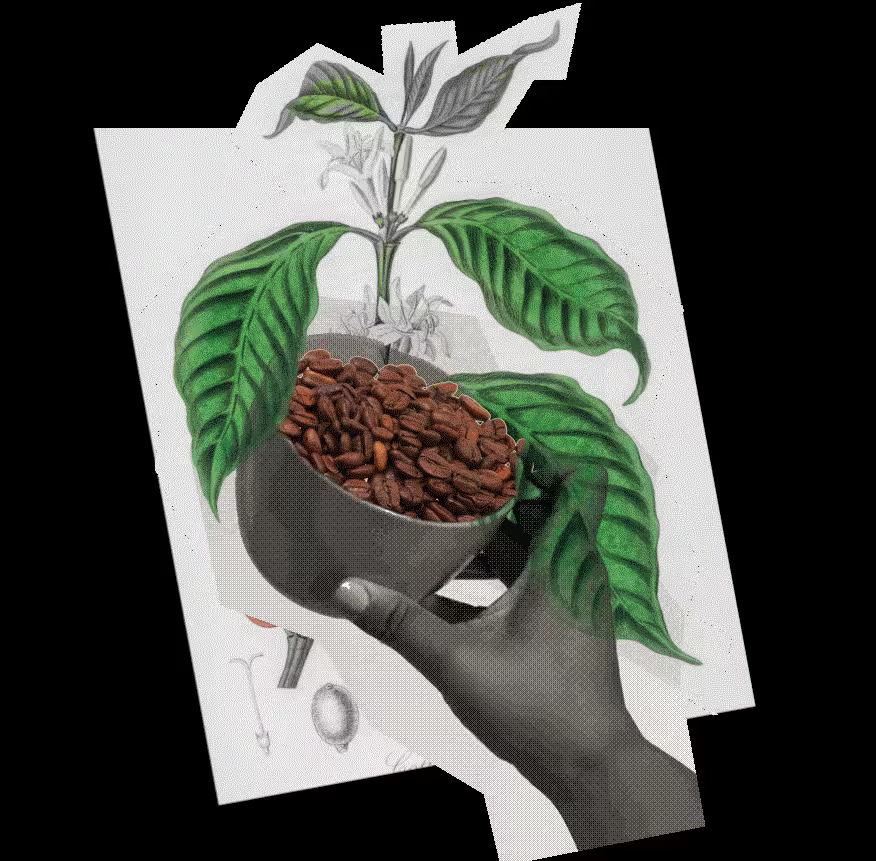A Day at Equator Coffees: a Tall Order for Sustainability
A case study by Shannon Colin
May 24, 2024
Key Takeaways
- Failure to address the impacts of climate change, poor working conditions, and inadequate farm incomes will put the long term viability of coffee at risk.
- Coffee farms like Aquiares take steps to mitigate sustainability risk through regenerative agriculture, rainforest and biodiversity protection, fair pay, and innovation.
- Consumers can help make coffee sustainable through purchasing Rainforest Alliance certified coffee and from coffee roasters committed to transparency.
- Equator Coffees prioritizes environmental sustainability across their entire supply chain. They source diverse and organically farmed coffee beans, utilize energy-efficient roasting methods, maintain rigorous air quality standards, and handle waste management with care.
- Equator Coffees and other specialty coffee companies support the future of sustainable coffee by helping fund World Coffee Research.
- Equator Coffees supports the community by investing in long-term relationships, financial assistance, and professional development for their farming partners and staff. These initiatives help improve economic opportunities for everyone involved, fostering a supportive coffee ecosystem.
On the Ground(s) at the Roastery
Coffee is the second most consumed drink outside of water in the US, with Americans drinking 146 billion cups of coffee every year. With that volume, where we buy our coffee has a huge impact on sustainability: it can be an environmental hero, or an environmental villain. Land use is one of the primary areas of opportunity and concern in coffee farming, as many of the large-scale farms grow coffee plants using sun-grown monocropping methods on previously deforested land, leading to further emissions and the degradation of ecosystems.
We recently made a visit to Equator Coffees’ roasting facility in San Rafael, California, as part of a Climatebase Fellowship project to figure out how we can contribute to the reduction of coffee’s carbon footprint - which we had recently learned has a higher carbon footprint than pork, much to the chagrin of my coffee-loving teammates.
Why Equator Coffees? After working as a barista and coffee shop manager for years in college, I moved to San Francisco - and Equator Coffees has been by far one of my favorite roasters. Equator Coffees is a specialty coffee business that exemplifies sustainability through their farm partnerships and bean sourcing, roasting practices, waste management, and social equity initiatives.
Founded in 1995 in the founders’ garage, Equator Coffees now roasts, packages, and sells just over 1 million pounds of coffee annually. As a B Corp, every team within Equator Coffees is held to high social and environmental standards set by B Laps – the founders Brooke and Helen, roasters, marketing team, sustainability team, and beyond. They have 11 cafes in California and provide wholesale beans nationally.
Now, for the visit: It was a sunny day in May, and we were welcomed to the sight of a neon green grassy meadow still damp from recent rains, a delicious wildflower fragrance, and of course the universally-loved aroma of freshly roasted coffee. We met with Equator’s Michelle Fleming, Head Roaster; Devorah Freudiger, Director of Coffee Culture; and Chris Janak, Compliance Manager for a tour. It felt like meeting old friends: their smiles were warm like the air inside the roasting plant, and it was clear that all of them love their jobs. They poured us precious cups of Kona Gesha coffee from a Chemex, and we enjoyed that while chatting about their business.
This Is How We Brew It…
Put simply, Equator Coffees takes a holistic look at the coffee supply chain to ensure that the road to their end product is as earth-friendly and circular as possible. They do this through a commitment to:
Environmental practices
Equator Coffees, and other specialty coffee shops, combat the serious problems of clearcutting and pesticides by prioritizing high-quality, shade-grown, and organically farmed coffee. Equator Coffees buys several types of beans, including dozens of coffee varieties this month. The Peru Chirinos is Regenerative Organic Certified (ROC). The Ethiopia coffees come from a co-op with 600+ small farms growing wild varieties of coffee in an agroforestry setting, meaning the coffee is interplanted with other crops in the forest to encourage biodiversity, helping the farms emit less carbon than they sequester.
Pro tip: Growing coffee in the shade without pesticides and other agrochemicals creates a biodiverse environment where coffee can serve as a carbon sink instead of a carbon emitter.
Another area of opportunity and concern for the coffee industry is natural gas emissions during the roasting process. The Equator Coffees team showed us around their Loring Roasters, which use convection heat like an air fryer circulating air and using 80% less natural gas than traditional roasters. The Equator Coffees roasting facility is across the street from a school, facing additional regulations about air quality, and they work with third-party auditors to measure and monitor the air quality.
Genetic bean variety
While Equator Coffees, like many specialty coffee brands, only carries Arabica beans today, they help fund research into hybrid bean varieties through World Coffee Research (WCR). This is important and novel work because Arabica beans, the dominant strain in everyone’s cups, face environmental risks. WCR’s work is centered on breeding coffee plants for higher yields, disease resistance, heat resistance, and good tasting varieties that consumers will love. More specialty coffee brands can follow Equator Coffees’ lead by investing in the future of coffee and supporting WCR’s research.
Waste management
Equator Coffees is a model citizen in the coffee world when it comes to managing waste with intention. They make business decisions with waste at the top of mind. Equator Coffees receives green coffee beans from origin, which are shipped inside a GrainPro plastic bag inside a burlap sack. The GrainPro bag helps maintain quality and reduces food losses without the use of chemicals, but it is complex to recycle because it has several types of polymer plastic. Equator Coffees works with the Annex, a coffee warehouse in Alameda, California, that collects Grainpro bags from their clients and sends them to a facility to be recycled at scale.
Equator Coffees also donates their burlap sacks to Bay Area farmers to use for weed suppression. They compost their coffee chaff. They only started selling coffee pods to hotels and consumers once they could purchase a compostable pod. And, they use Straus milk in their cafes. Straus is an organic farm in Northern California that is on the path to becoming carbon neutral, even using seaweed in their cow diets to reduce methane emissions in cow burps.
Pro tip: don’t toss your grounds - put them in the ground! Coffee grounds are rich in nitrogen and other nutrients, and work fairly well as a fertilizer. Coffee should be spread in a thin layer, rather than being clumped in one place. Another advantage: it’s said that gophers don’t like the smell.
Social equity
Equator Coffees invests in people. They have strong, committed, long-term relationships with coffee farms. From the proceeds of Super Bloom, a blend that features Burundi beans, Equator Coffees provided a grant to the Burundi coffee farm to help teach the women additional skills like basket-weaving to support their economic opportunities during the off-season. Equator Coffees has financially supported a co-op in Guatemala by funding an organic fertilizer to boost production in low-yield plots. Equator Coffees has also raised funds to support the purchase of solar dryers to help reduce the risk of mold and coffee losses in wet coffee farming regions. This is important because losses account for about 40% of the coffee industry’s total emissions. Reducing losses can help improve coffee’s carbon footprint.
Inside the California cafes and roasting plant, Equator Coffees provides baristas with professional development through training and competitions, they provide healthcare and 401Ks, and they hire from within, bringing baristas into the wholesale process. Being inside the roasting facility, my teammates and I could feel the positive energy flowing between colleagues who genuinely love working together. Overall, Equator Coffees makes impressive investments in the farmers and employees with whom they work long-term to create a circular relationship of mutual trust and support.
Pro tip: Consider the humans behind the beans. Find out which companies treat their farming partners and employees well. This is a great way to make sure that you’re voting with your dollars, one cup at a time.
We were so inspired by our visit to Equator Coffees that, afterwards, I was compelled to visit their cafe overlooking the Golden Gate Bridge. I took my in-laws visiting from India there so they could experience this delicious coffee while ruminating on how to design a circular coffee business that has a net-positive carbon impact sourcing beans from India and selling them in the US. More to come on that!






